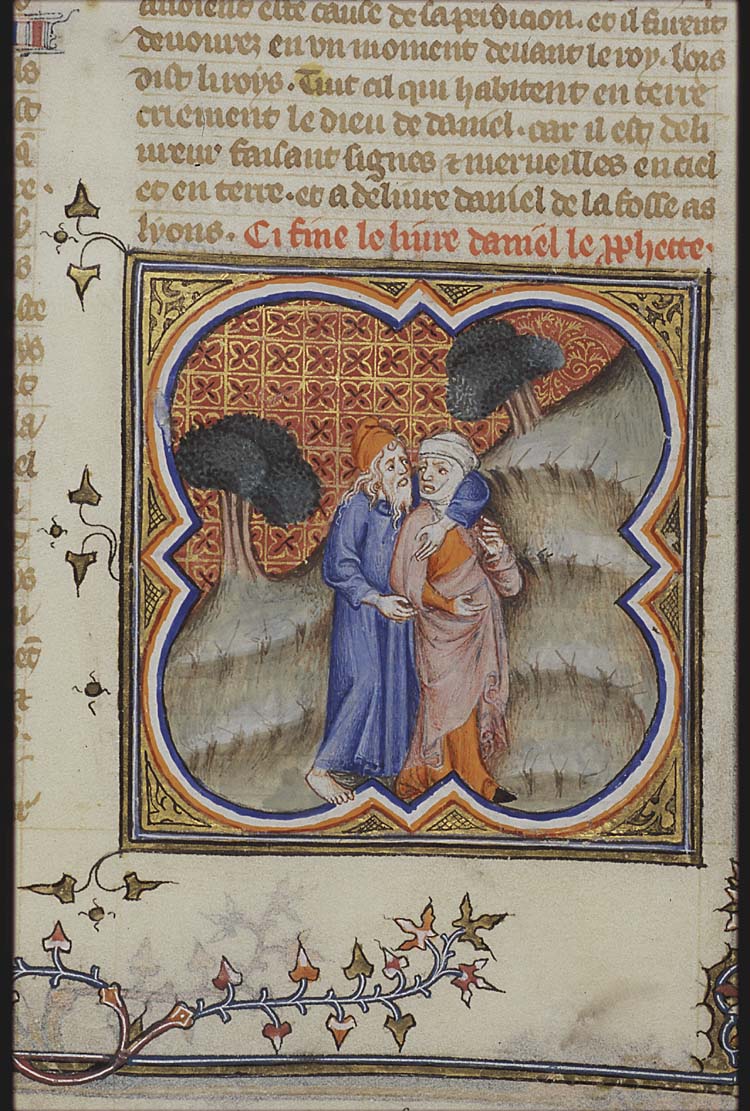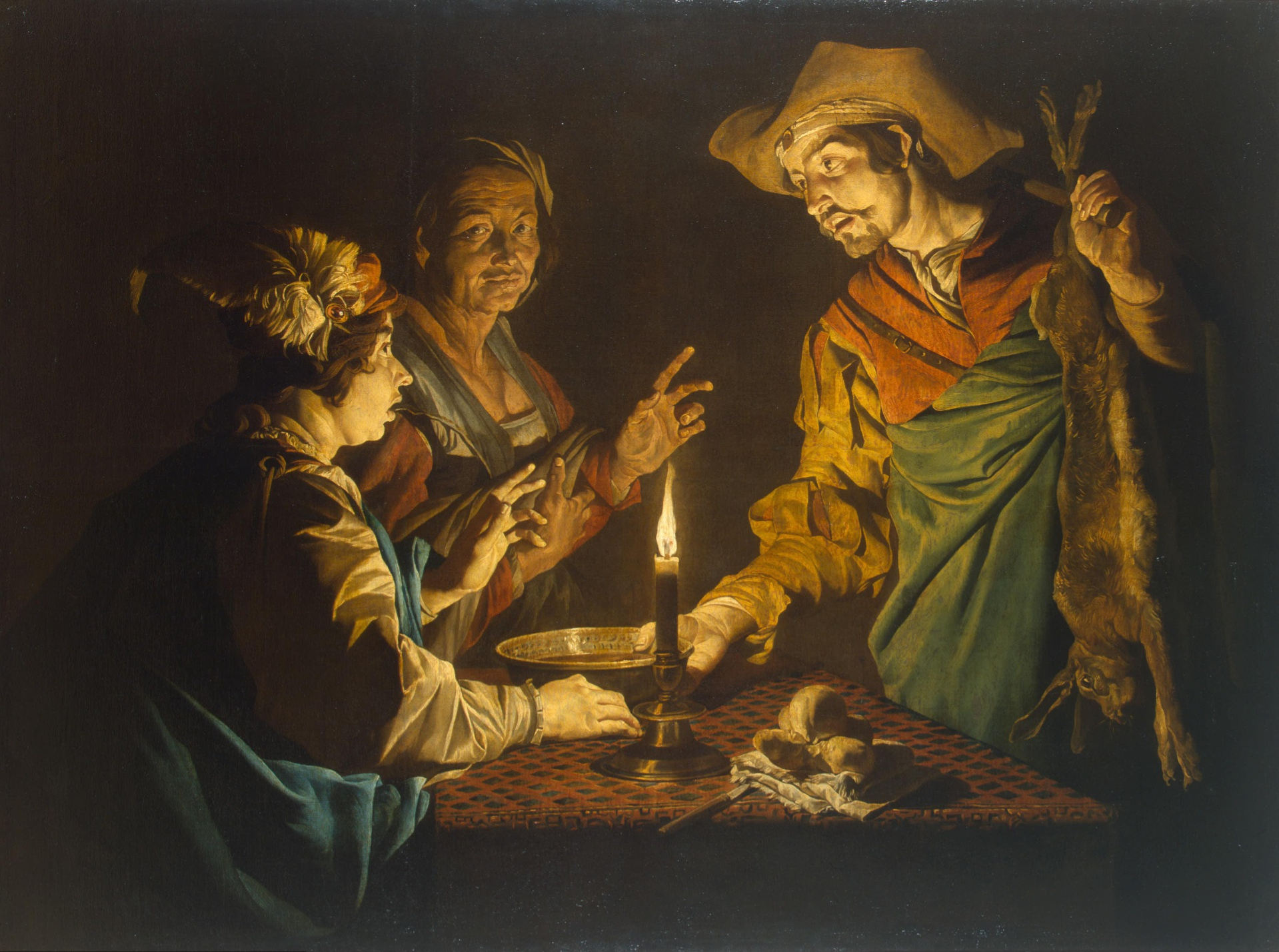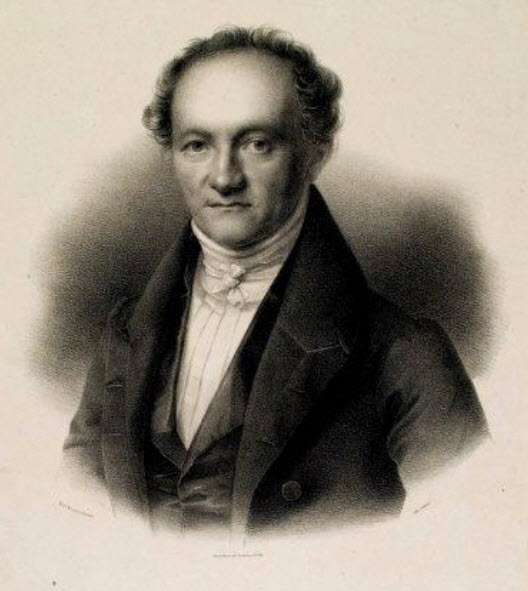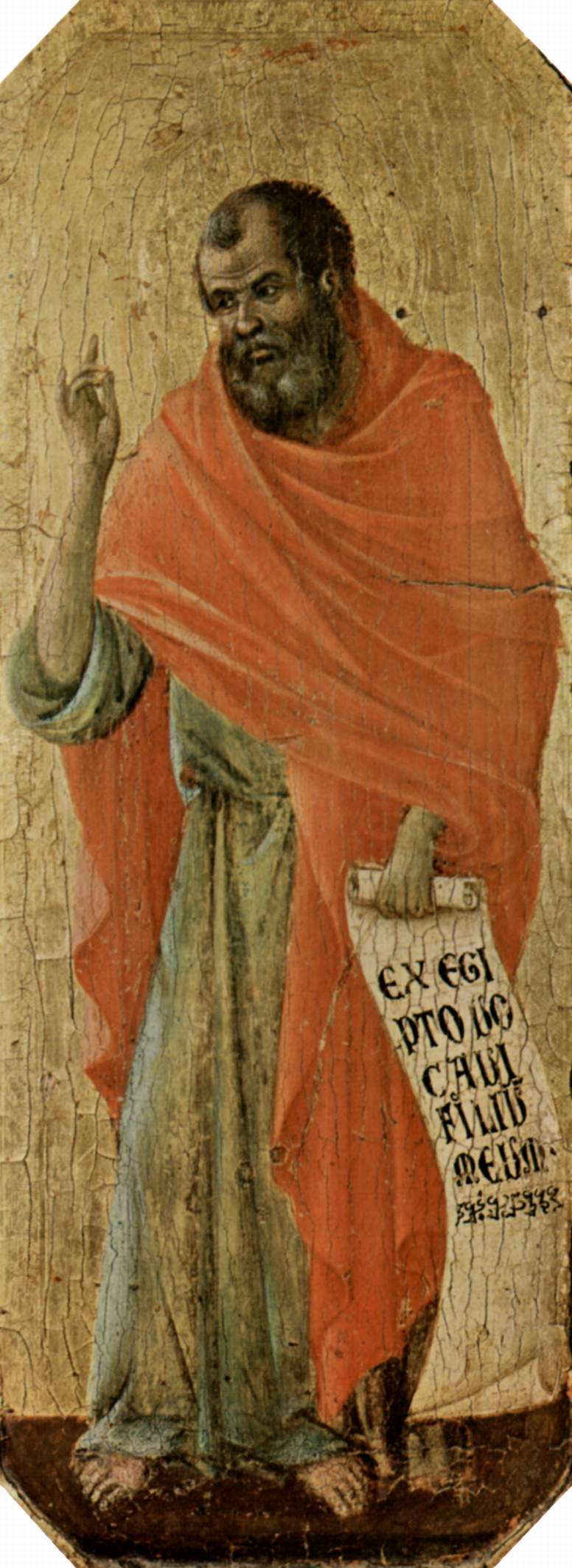|
Beeri
There are two biblical figures named 'Beeri.' The etymology of Beeri (, ''Bə’êrî'') is given as "belonging to a fountain" by Wilhelm Gesenius, but as "expounder" by the ''International Standard Bible Encyclopedia'' and "well" according to the ''Holman Bible Dictionary''. According to the Book of Hosea, Beeri was the father of the prophet Hosea. Jewish tradition says that he only uttered a few words of prophecy, and as they were insufficient to be embodied in a book by themselves, they were incorporated in the Book of Isaiah, viz., verses 19 and 20 of the 8th chapter. As such, Beeri is considered a prophet in Judaism. Beeri was sometimes identified with Beerah (1 Chronicles 5:6), who was taken into exile by the Assyrians.''Babylonian Talmud'', tractate Peshahim 87b, and tractate Baba Batra 14b He is also considered holy by Muslims. The other Beeri was the father of Judith, one of the wives of Esau (Genesis Genesis may refer to: Bible * Book of Genesis, the first book of t ... [...More Info...] [...Related Items...] OR: [Wikipedia] [Google] [Baidu] |
Hosea
In the Hebrew Bible, Hosea ( or ; he, הוֹשֵׁעַ – ''Hōšēaʿ'', 'Salvation'; gr, Ὡσηέ – ''Hōsēé''), son of Beeri, was an 8th-century BCE prophet in Israel and the nominal primary author of the Book of Hosea. He is the first of the Twelve Minor Prophets, whose collective writings were aggregated and organized into a single book in the Jewish Tanakh by the Second Temple period, forming the last book of the Nevi'im; but which writings are distinguished as individual books in Christianity. Hosea is often seen as a "prophet of doom", but underneath his message of destruction is a promise of restoration. The Talmud claims that he was the greatest prophet of his generation. The period of Hosea's ministry extended to some sixty years, and he was the only prophet of Israel of his time who left any written prophecy. Name The name ''Hosea'' (meaning 'salvation', 'he saves' or 'he helps'), seems to have been common, being derived from a related verb meaning ''sa ... [...More Info...] [...Related Items...] OR: [Wikipedia] [Google] [Baidu] |
Esau
Esau ''Ēsaû''; la, Hesau, Esau; ar, عِيسَوْ ''‘Īsaw''; meaning "hairy"Easton, M. ''Illustrated Bible Dictionary'', (, , 2006, p. 236 or "rough".Mandel, D. ''The Ultimate Who's Who in the Bible'', (.), 2007, p. 175 is the elder son of Isaac in the Hebrew Bible. He is mentioned in the Book of Genesis and by the prophets Obadiah and Malachi. The Christian New Testament alludes to him in the Epistle to the Romans and in the Epistle to the Hebrews. According to the Hebrew Bible, Esau is the progenitor of the Edomites and the elder brother of Jacob, the patriarch of the Israelites.Metzger & Coogan (1993). ''Oxford Companion to the Bible'', pp. 191–92. Jacob and Esau were the sons of Isaac and Rebecca, and the grandsons of Abraham and Sarah. Of the twins, Esau was the first to be born with Jacob following, holding his heel. Isaac was sixty years old when the boys were born. Esau, a "man of the field", became a hunter who had "rough" qualities that distinguished him fr ... [...More Info...] [...Related Items...] OR: [Wikipedia] [Google] [Baidu] |
Wilhelm Gesenius
Heinrich Friedrich Wilhelm Gesenius (3 February 178623 October 1842) was a German orientalist, lexicographer, Christian Hebraist, Lutheran theologian, Biblical scholar and critic. Biography Gesenius was born at Nordhausen. In 1803 he became a student of philosophy and theology at the University of Helmstedt, where Heinrich Henke was his most influential teacher; but the latter part of his university course was taken at Göttingen, where Johann Gottfried Eichhorn and Thomas Christian Tychsen were then at the height of their popularity. In 1806, shortly after graduation, he became ''Repetent'' and ''Privatdozent'' (or ''Magister legens'') at Göttingen; and, as he was later proud to say, had August Neander for his first pupil in Hebrew language. On 8 February 1810 he became ''professor extraordinarius'' in theology, and on 16 June 1811 was promoted to ''ordinarius'', at the University of Halle, where, in spite of many offers of high preferment elsewhere, he spent the rest of his l ... [...More Info...] [...Related Items...] OR: [Wikipedia] [Google] [Baidu] |
Book Of Hosea
The Book of Hosea ( hbo, , Sēfer Hōšēaʿ) is collected as one of the twelve minor prophets of the Nevi'im ("Prophets") in the Tanakh, and as a book in its own right in the Christian Old Testament. According to the traditional order of most Hebrew Bibles, it is the first of the Twelve. Set around the fall of the Northern Kingdom of Israel, the Book of Hosea denounces the worship of gods other than Yahweh (the God of Israel), metaphorically comparing Israel's abandonment of Yahweh to a woman being unfaithful to her husband. According to the book's narrative, the relationship between Hosea and his unfaithful wife Gomer is comparable to the relationship between Yahweh and his unfaithful people Israel. The eventual reconciliation of Hosea and Gomer is treated as a hopeful metaphor for the eventual reconciliation between Yahweh and Israel. Dated to , it is one of the oldest books of the Tanakh, predating final recensions of the full Torah (Pentateuch). Hosea is the source of the phr ... [...More Info...] [...Related Items...] OR: [Wikipedia] [Google] [Baidu] |
Prophet
In religion, a prophet or prophetess is an individual who is regarded as being in contact with a divine being and is said to speak on behalf of that being, serving as an intermediary with humanity by delivering messages or teachings from the supernatural source to other people. The message that the prophet conveys is called a prophecy. Claims of prophethood have existed in many cultures and religions throughout history, including Judaism, Christianity, Islam, ancient Greek religion, Zoroastrianism, Manichaeism, Hinduism , and many others. Etymology The English word ''prophet'' is the transliteration of a compound Greek word derived from ''pro'' (before/toward) and ''phesein'' (to tell); thus, a προφήτης (''prophḗtēs'') is someone who conveys messages from the divine to humans, including occasionally foretelling future events. In a different interpretation, it means advocate or speaker. In Hebrew, the word נָבִיא (''nāvî''), "spokesperson", traditionally t ... [...More Info...] [...Related Items...] OR: [Wikipedia] [Google] [Baidu] |
Book Of Isaiah
The Book of Isaiah ( he, ספר ישעיהו, ) is the first of the Latter Prophets in the Hebrew Bible and the first of the Major Prophets in the Christian Old Testament. It is identified by a superscription as the words of the 8th-century BCE prophet Isaiah ben Amoz, but there is extensive evidence that much of it was composed during the Babylonian captivity and later. Johann Christoph Döderlein suggested in 1775 that the book contained the works of two prophets separated by more than a century, and Bernhard Duhm originated the view, held as a consensus through most of the 20th century, that the book comprises three separate collections of oracles: Proto-Isaiah ( chapters 1– 39), containing the words of the 8th-century BCE prophet Isaiah; Deutero-Isaiah ( chapters 40– 55), the work of an anonymous 6th-century BCE author writing during the Exile; and Trito-Isaiah ( chapters 56– 66), composed after the return from Exile. Isaiah 1– 33 promises judgment and restoration f ... [...More Info...] [...Related Items...] OR: [Wikipedia] [Google] [Baidu] |
Judaism
Judaism ( he, ''Yahăḏūṯ'') is an Abrahamic, monotheistic, and ethnic religion comprising the collective religious, cultural, and legal tradition and civilization of the Jewish people. It has its roots as an organized religion in the Middle East during the Bronze Age. Modern Judaism evolved from Yahwism, the religion of ancient Israel and Judah, by the late 6th century BCE, and is thus considered to be one of the oldest monotheistic religions. Judaism is considered by religious Jews to be the expression of the covenant that God established with the Israelites, their ancestors. It encompasses a wide body of texts, practices, theological positions, and forms of organization. The Torah, as it is commonly understood by Jews, is part of the larger text known as the ''Tanakh''. The ''Tanakh'' is also known to secular scholars of religion as the Hebrew Bible, and to Christians as the " Old Testament". The Torah's supplemental oral tradition is represented by later texts s ... [...More Info...] [...Related Items...] OR: [Wikipedia] [Google] [Baidu] |
Book Of Genesis
The Book of Genesis (from Greek ; Hebrew: בְּרֵאשִׁית ''Bəreʾšīt'', "In hebeginning") is the first book of the Hebrew Bible and the Christian Old Testament. Its Hebrew name is the same as its first word, ( "In the beginning"). Genesis is an account of the creation of the world, the early history of humanity, and of Israel's ancestors and the origins of the Jewish people. Tradition credits Moses as the author of Genesis, as well as the books of Exodus, Leviticus, Numbers and most of Deuteronomy; however, modern scholars, especially from the 19th century onward, place the books' authorship in the 6th and 5th centuries BC, hundreds of years after Moses is supposed to have lived.Davies (1998), p. 37 Based on scientific interpretation of archaeological, genetic, and linguistic evidence, most scholars consider Genesis to be primarily mythological rather than historical. It is divisible into two parts, the primeval history (chapters 1–11) and the ancestr ... [...More Info...] [...Related Items...] OR: [Wikipedia] [Google] [Baidu] |
Prophets In Judaism
According to the Talmud, there were 48 prophets and 7 prophetesses of Judaism. The last Jewish prophet is believed to have been Malachi. In Jewish tradition it is believed that the period of prophecy, called '' Nevuah'', ended with Haggai, Zechariah, and Malachi at which time the "Shechinah departed from Israel". Rabbinic tradition According to the Talmud, there were 48 prophets and 7 prophetesses. The 48 prophets to Israel # Abraham # Isaac # Jacob # Moses # Aaron # Joshua # Phinehas # Eli # Elkanah # Samuel # Gad # Natan # David # Ahijah the Shilonite # Solomon # Shemaiah # Iddo # Obadiah # Jehu # Oded # Azariah # Hanani # Jahaziel # Eliezer # Elijah # Elisha # Micaiah # Jonah # Amos # Hosea # Amoz # Isaiah # Micah # Joel # Zephaniah # Nahum # Habakkuk # Urijah # Jeremiah # Ezekiel # Mehseiah # Neriah # Baruch ben Neriah # Seraiah # Haggai # Zechariah # Mordechai Bilshan # Malachi The 7 prophetesses to Israel # Sarah # Miriam # Deborah # Hannah # Abigail # ... [...More Info...] [...Related Items...] OR: [Wikipedia] [Google] [Baidu] |




.jpg)


